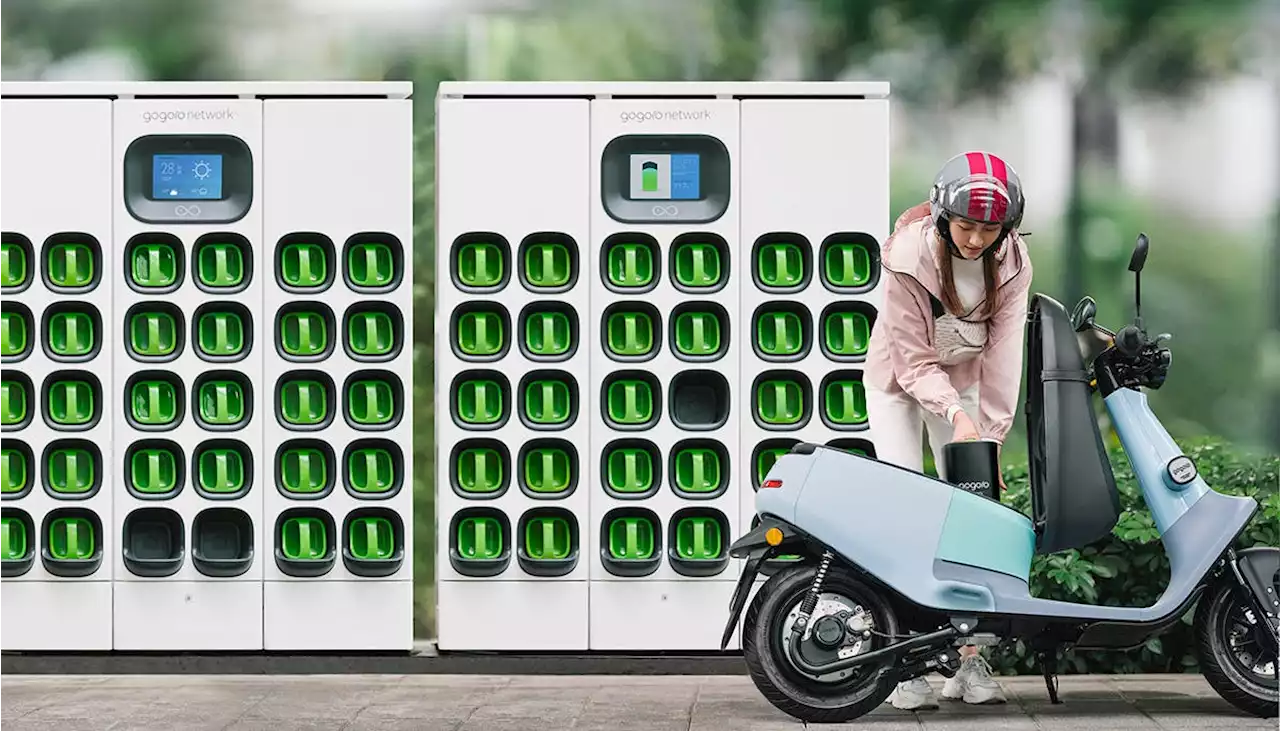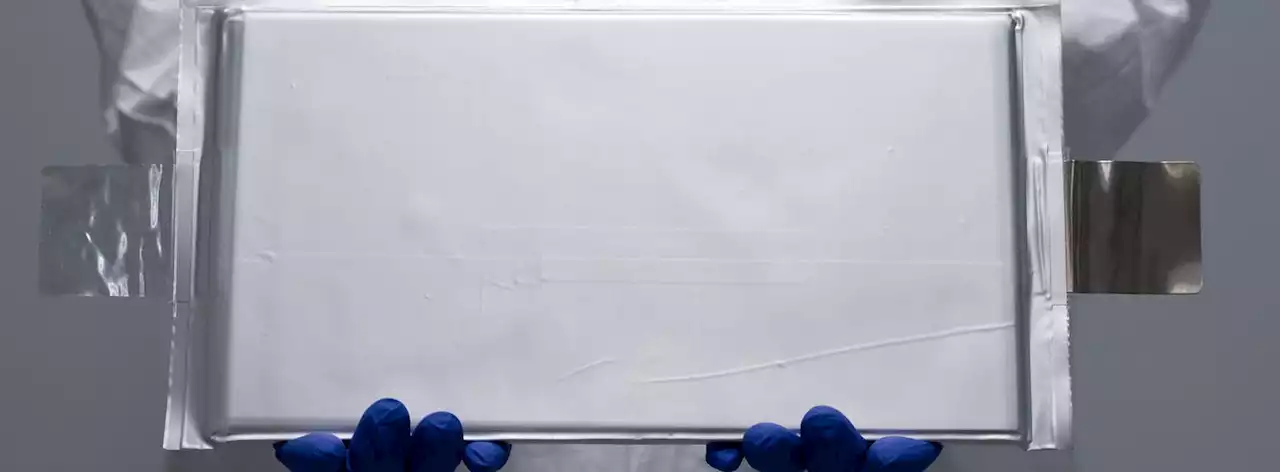Stellantis is doubling down on solid-state EV batteries and hedging its bets with hydrogen fuel cell vehicles for light-duty commercial use.
ByThe line separating EV batteries from hydrogen-fueled mobility is getting thinner, and Stellantis provides a good example. Last year the global automaker made some big moves in the fuel cell truck area and threw down a cool $200 million for a stake in the US battery startup Factorial Energy, too. Stellantis is already showcasing Factorial’s new solid-state EV batteries this year, which leads one to wonder if they have any new fuel cell news up their sleeves for 2023, too.
Eco-friendliness is another attraction. In recent years, automakers have been courting favor with the environmentally sensitive members of the car-buying public. They are leaning on their supply chains to use more sustainable materials, reduce greenhouse gas emissions, and follow ethical business practices.
Solid-state EV batteries generally use more lithium than conventional batteries, which can raise some sustainability issues depending on. On the plus side, some automakers see an improved potential for recycling solid-state EV batteries, helping to relieve pressure on virgin sources. Solid-state technology also uses significantly less graphite and cobalt, both of which are fraught with environmental and ethical issues.
In particular, the US Department of Energy has raised the alarm on cobalt. “Right now, Co can make up to 20% of the weight of the cathode in lithium ion EV batteries. There are“Cobalt is mined as a secondary material from mixed nickel and copper ores. This means the supply is not independent of other commodity businesses and introducing new recovery projects is expensive,” they add.
United States Latest News, United States Headlines
Similar News:You can also read news stories similar to this one that we have collected from other news sources.
 Systems analysis of the effect of hydrogen sulfide on the growth of Methylococcus capsulatus Bath - Applied Microbiology and BiotechnologyAbstract Methanotrophs are bacteria capable on growing on methane as their sole carbon source. They may provide a promising route for upgrading natural gas into more valuable fuels and chemicals. However, natural gas may contain significant quantities of hydrogen sulfide. Little is known about how hydrogen sulfide affects the growth and physiology of methanotrophs aside from a few studies showing that it is inhibitory. This study investigated how hydrogen sulfide affects the growth and physiology of the model methanotroph, Methylococcus capsulatus Bath. Growth studies demonstrated that hydrogen sulfide inhibits the growth of M. capsulatus Bath when the concentration exceeds 0.5% (v/v). To better understand how hydrogen sulfide is inhibiting the growth of M. capsulatus Bath, transcription and metabolite concentrations were profiled using RNA sequencing and gas chromatography-mass spectrometry, respectively. Our analysis of the differentially expressed genes and changes in metabolite concentrations suggests that hydrogen sulfide inhibits cellular respiration. The cells respond to sulfide stress in part by increasing the rate of sulfide oxidation and by increasing the expression of sulfide quinone reductase and a putative persulfide dioxygenase. In addition, they reduce the expression of the native calcium-dependent methanol dehydrogenase and increase the expression of XoxF, a lanthanide-dependent methanol dehydrogenase. While the reason of this switch in unknown, XoxF has previously been shown to be induced by lanthanides or nitric oxide in methanotrophs. Collectively, these results further our understanding of how methanotrophs respond to sulfide stress and may aid in the engineering of strains resistant to hydrogen sulfide. Key points • Hydrogen sulfide inhibits growth of Methylococcus capsulatus Bath • Sulfide stress inhibits cellular respiration • Sulfide stress induces XoxF, a lanthanide-dependent methanol dehydrogenase
Systems analysis of the effect of hydrogen sulfide on the growth of Methylococcus capsulatus Bath - Applied Microbiology and BiotechnologyAbstract Methanotrophs are bacteria capable on growing on methane as their sole carbon source. They may provide a promising route for upgrading natural gas into more valuable fuels and chemicals. However, natural gas may contain significant quantities of hydrogen sulfide. Little is known about how hydrogen sulfide affects the growth and physiology of methanotrophs aside from a few studies showing that it is inhibitory. This study investigated how hydrogen sulfide affects the growth and physiology of the model methanotroph, Methylococcus capsulatus Bath. Growth studies demonstrated that hydrogen sulfide inhibits the growth of M. capsulatus Bath when the concentration exceeds 0.5% (v/v). To better understand how hydrogen sulfide is inhibiting the growth of M. capsulatus Bath, transcription and metabolite concentrations were profiled using RNA sequencing and gas chromatography-mass spectrometry, respectively. Our analysis of the differentially expressed genes and changes in metabolite concentrations suggests that hydrogen sulfide inhibits cellular respiration. The cells respond to sulfide stress in part by increasing the rate of sulfide oxidation and by increasing the expression of sulfide quinone reductase and a putative persulfide dioxygenase. In addition, they reduce the expression of the native calcium-dependent methanol dehydrogenase and increase the expression of XoxF, a lanthanide-dependent methanol dehydrogenase. While the reason of this switch in unknown, XoxF has previously been shown to be induced by lanthanides or nitric oxide in methanotrophs. Collectively, these results further our understanding of how methanotrophs respond to sulfide stress and may aid in the engineering of strains resistant to hydrogen sulfide. Key points • Hydrogen sulfide inhibits growth of Methylococcus capsulatus Bath • Sulfide stress inhibits cellular respiration • Sulfide stress induces XoxF, a lanthanide-dependent methanol dehydrogenase
Read more »
 Conamix Working To Get Lithium Sulfur Batteries On The Market In the Next 5 YearsThe commercialization of the world’s first sulfur-based lithium battery will reduce reliance on cobalt and nickel and at the same time, significantly reduce the cost of EV batteries by 30% because sulfur is abundant and cheaper.
Conamix Working To Get Lithium Sulfur Batteries On The Market In the Next 5 YearsThe commercialization of the world’s first sulfur-based lithium battery will reduce reliance on cobalt and nickel and at the same time, significantly reduce the cost of EV batteries by 30% because sulfur is abundant and cheaper.
Read more »
 Gogoro Batteries Powers 90% of Taiwan's Electric ScootersGogoro had a great year in 2022, with its battery-swap technology powering 5 of the 6 best-selling electric mopeds in Taiwan!
Gogoro Batteries Powers 90% of Taiwan's Electric ScootersGogoro had a great year in 2022, with its battery-swap technology powering 5 of the 6 best-selling electric mopeds in Taiwan!
Read more »
Energy company’s plan to place 150-ton batteries on Williamsburg rooftop ignites tenants’ fearsTenants say they are terrified of being 'guinea pigs,' but experts say the equipment is safer than e-bikes.
Read more »
 Getting charged up: 2 San Diego companies receive federal funding for developing better EV batteriesA Department of Energy program looks to strengthen the supply chain for advanced battery systems.
Getting charged up: 2 San Diego companies receive federal funding for developing better EV batteriesA Department of Energy program looks to strengthen the supply chain for advanced battery systems.
Read more »
 LA Council again delays final vote on Scattergood ‘Green Hydrogen’ planThe much-debated plan would shift the Scattergood Generating Station, a power plant in Playa del Rey, to be powered by green hydrogen instead of natural gas.
LA Council again delays final vote on Scattergood ‘Green Hydrogen’ planThe much-debated plan would shift the Scattergood Generating Station, a power plant in Playa del Rey, to be powered by green hydrogen instead of natural gas.
Read more »
